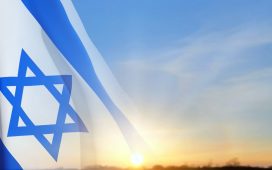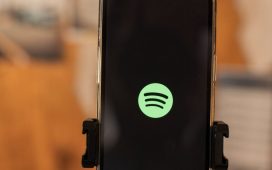The opening of a community centre for LGBTQ+ people in Ghana has prompted a wave of protest against the rights of sexual minorities in the country.
LGBTQ+ people have received death threats and online abuse since the opening in January of the centre in the capital, Accra, meant to be a safe space for them to meet and find support. Government ministers and religious groups are now calling for its closure.
Although same-sex relationships are illegal in Ghana, the law is rarely enforced, according to a 2018 report by Human Rights Watch.
However, the opening of the centre has amplified discrimination against the community, say activists. Fatima Derby, a feminist writer, said LGBTQ+ Ghanaians were “under threat” after the “uproar” caused by the opening of the centre.
“It’s really disappointing the way the space has been treated. It’s also really disappointing the way LGBTQI+ individuals have been treated by politicians, religious leaders and even ordinary citizens.
“For a long period of time, LGBTQ Ghanaians have been treated as disposable, but I think now it is becoming more amplified,” she said.
“A lot of politicians have used this opportunity to gain favour once again from the electorate by being homophobic, because they know the population is largely homophobic.”
Last week, Sarah Adwoa Safo, newly elected minister for gender and children, told a parliamentary committee: “The issue of LGBTQI is an issue that when mentioned creates some controversy, but what I want to say is that our laws are clear on such practices. It makes it criminal.
“The criminality of LGBT is nonnegotiable and our cultural practices also frown on it.”
At a recent press conference, Ghana’s information minister, Kojo Oppong Nkrumah, said the government was considering introducing legislation against LGBTQ+ advocacy. “We should be able to contemplate legislation in the interest of public morality, which will not be against the constitution but will now say that you cannot advocate for and promote LGBT activities in this country,” he said.
The community centre was set up by LGBT+ Rights Ghana. A fundraising event to mark the opening was attended by the Danish ambassador, the Australian high commissioner and EU delegates, which caused outrage and prompted repeated claims that the international community was promoting LGBTQ+ rights.
On Saturday, the Ghana Catholic church bishops’ conference released a statement demanding the centre be shut down and condemned “all those who support the practice of homosexuality in Ghana”.
“The EU should not impose their so-called values and beliefs on Ghanaians who are also against homosexuality,” it said.
It urged the government “never to be cowed down or to succumb to the pressure to legalise the rights of LGBTQIs in Ghana”.
The bishops’ comments made the front pages of a number of newspapers on Monday.
In response to the criticism, the EU diplomatic mission in Ghana posted a message of support on Facebook saying: “Equality, tolerance and respect for each other are core values of the EU. The EU supports civil society organisations promoting #LGBTIQ rights.”
Derby said claims that being gay went against Ghanaian culture, or was a result of western influence, were false and propagated by the church and the media.
On Tuesday, LGBT+ Rights Ghana tweeted that its offices had been raided and closed down by the police. The organisation had already received threats from opposition groups that the community centre would be destroyed.
On Monday, it urged people in the community not to panic but to stay safe. “This is not the best time to invite strangers over or visit strangers,” said the organisation, which was founded in 2018 to provide support for LGBTQ+ Ghanaians. People should “avoid staying alone in risk zones”, it added.
In an earlier statement the group said: “The fundraising activity [at the centre] has unfortunately sparked negative reporting riddled with false narrations in the Ghanaian media. We have the right as Ghanaians to live in peace, join groups, be protected from harm and have our privacy respected.”





